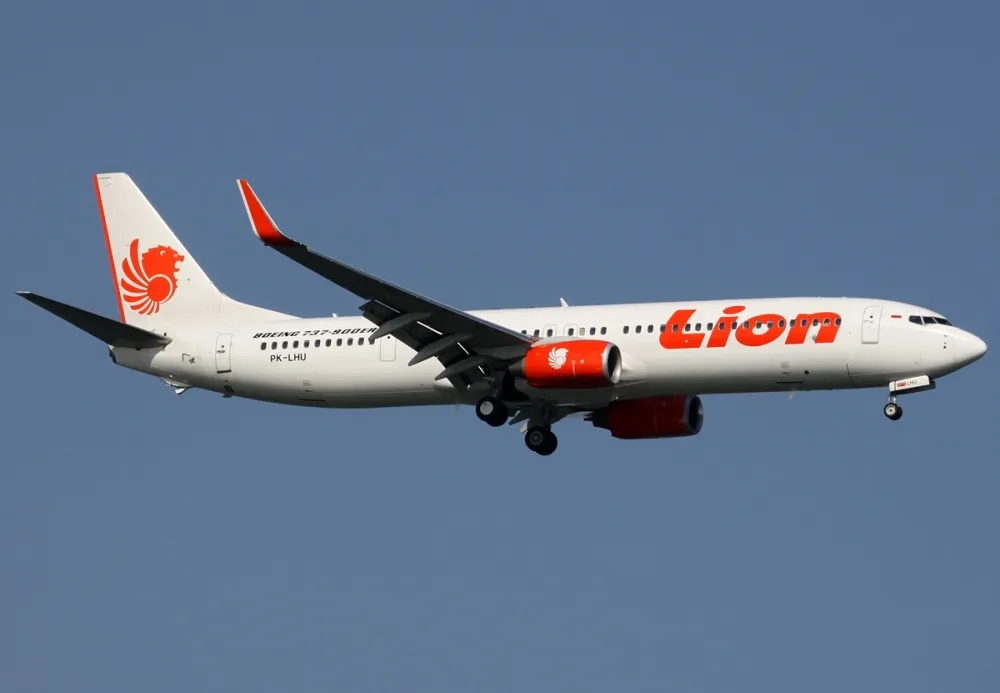
Lion Air Cockpit Voice Recorder Found
Jan 14, 2019

The cockpit voice recorder from the Lion Air flight that crashed in October 2018 has been successfully recovered. This critical piece of equipment, crucial for understanding the events leading up to the disaster, was located in the Java Sea, where the plane went down shortly after takeoff. Authorities are hopeful that analyzing the recorded data will provide insights into the cause of the accident, which claimed the lives of all 189 passengers and crew on board. The recovery of the voice recorder marks a significant step in the ongoing investigation into this tragic incident.
The recent discovery of the "Lion Air cockpit voice recorder" has sparked significant interest and discussion within both aviation and media communities. This critical piece of equipment is essential for understanding the circumstances surrounding the tragic crash of Lion Air Flight JT610, which occurred in October 2018. The recovery of the cockpit voice recorder not only aids in piecing together the events leading up to the accident but also serves as a vital step in improving aviation safety protocols.
Understanding the Cockpit Voice Recorder
A "cockpit voice recorder (CVR)" is an essential device in modern aircraft, designed to capture the audio environment in the cockpit. This includes conversations between pilots, communications with air traffic control, and any ambient sounds that may provide context to flight operations. Analyzing the data retrieved from a CVR can reveal critical insights into pilot behavior, decision-making, and potential mechanical issues.
Significance of the Lion Air CVR Recovery
The recovery of the "Lion Air CVR" is particularly significant for several reasons:
| Reason | Importance |
|---|---|
| Accident Investigation | Provides crucial data to understand the cause of the crash. |
| Improving Safety | Insights gained can lead to better training and safety protocols. |
| Public Confidence | Restores trust in airline safety measures and regulations. |
In the aftermath of the crash, investigators faced numerous challenges. The recovery of the CVR is a ray of hope, enabling a clearer narrative of the final moments of Flight JT610. This information can help prevent future tragedies by informing regulatory changes and enhancing pilot training programs.
What We Know About the Lion Air Crash
The "Lion Air Flight JT610" was a scheduled domestic flight from Jakarta to Pangkal Pinang, Indonesia, that tragically crashed into the Java Sea shortly after takeoff. Investigations revealed issues with the aircraft's "MCAS (Maneuvering Characteristics Augmentation System)", which played a significant role in the crash. The recovery of the CVR will aid in confirming these findings and shedding light on the pilots' interactions with the aircraft systems.
The Role of Technology in Aviation Safety
Modern aviation relies heavily on technology to enhance safety. The "cockpit voice recorder" is just one of many devices designed to improve the safety of air travel. Other technologies include flight data recorders, advanced navigation systems, and automated safety checks. The integration of these systems allows for real-time monitoring and analysis, which can prevent accidents before they occur.
The Future of Aviation Safety Post-Crash
With the recovery of the Lion Air CVR, the aviation industry is now looking toward the future. The data retrieved from the recorder will not only provide answers regarding the specific incident but will also contribute to a broader understanding of aviation safety. As investigations continue, stakeholders will likely implement new regulations and training programs based on the findings.
Conclusion: The Path Forward
The discovery of the "Lion Air cockpit voice recorder" is an essential milestone in the ongoing investigation into the crash of Flight JT610. As more details emerge, it is crucial for the aviation community to learn from past tragedies and continuously strive for improvements in safety. The recovery of this vital piece of equipment marks a significant step in honoring the memory of those lost and ensuring that such incidents do not happen again.
In conclusion, the recovery of the "cockpit voice recorder" is a testament to the importance of thorough investigations in the aviation industry. As we await the results of the analysis, we are reminded of the critical need for safety in air travel and the ongoing role of technology in achieving that goal.
Related Articles

Explore Thailand: The Best Islands to Visit for Paradise, Adventure, and Relaxation

The Ultimate Guide to the Best Islands in Thailand for Your Next Getaway

Do babies need passports? How to get a passport for a newborn

How to get a U.S. passport fast: here’s how to expedite the process

What is Mobile Passport Control: 5 reasons why you should use it

SENTRI vs. Global Entry: A detailed guide

Do you need a passport to go to the Bahamas? Let’s find out

Do you need a passport to go to Mexico? A detailed guide

Do you need a passport to go to Canada? We got the answer

Do You Need a Passport for a Cruise: An Essential Travel Guide

Booster Seat Requirements: All the Rules to Follow in Your Rental Car

What Are the World’s Most Powerful Passports, and How Does Yours Rank?

How to Take a Passport Photo at Home: A Helpful Guide

You've got to have heart! Southwest's new livery

Your opinion: Should water be free on low cost carriers?

Young women bolder than guys as solo travellers
